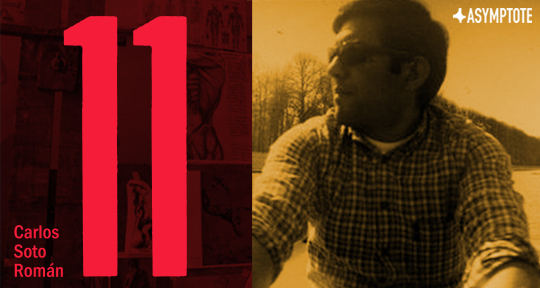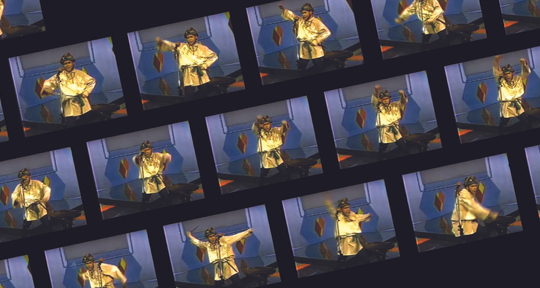First off, we want to thank the five readers who heeded our appeal from our editor-in-chief and signed up to be sustaining members this past week. Welcome to the family, Justin Briggs, Gina Caputo, Monika Cassel, Michaela Jones, and Phillip Kim! For those who are still hesitating, take it from Lloyd Schwartz, who says, “Asymptote is one of the rare cultural enterprises that’s really worth supporting. It’s both a literary and a moral treasure.” If you’ve enjoyed our Winter 2017 issue, why not stand behind our mission by becoming a sustaining member today?
*
One week after the launch of our massive Winter 2017 edition, we invited some section editors to talk up their favorite pieces:
Criticism Editor Ellen Jones on her favorite article:
My highlight from the Criticism section this January is Ottilie Mulzet’s review of Evelyn Dueck’s L’étranger intime, the work that gave us the title of this issue: ‘Intimate Strangers’. Mulzet translates from Hungarian and Mongolian, but (being prolifically multilingual) is also able to offer us a detailed, thoughtful, and well-informed review of a hefty work of French translation scholarship. Dueck’s book is a study of French translations of Paul Celan’s poetry from the 1970s to the present day (focussing on André du Bouchet, Michel Deguy, Marthine Broda, and Jean-Pierre Lefebvre) and is, in Mulzet’s estimation, ‘an indispensable map for the practice of the translator’s art’. One of this review’s many strengths is the way it positions Dueck’s book in relationship to its counterparts in Anglophone translation scholarship; another is its close reading of passages from individual poems in order to illustrate differences in approach among the translators; a third is the way Mulzet uses Dueck’s work as a springboard to do her own thinking about translational paratexts, and to offer potential areas for further research. The reviewer describes L’étranger intime as ‘stellar in every way’—the same might be said of the review, too.
Chief Executive Assistant Theophilus Kwek, who stepped in to edit our Writers on Writers section for the current issue, had this to say:
When asked to pick a highlight from this issue’s Writers on Writers feature, I was torn between Victoria Livingstone’s intimate exploration of Xánath Caraza’s fascinating oeuvre and Philip Holden’s searching essay on Singapore’s multilingual—even multivocal—literary history, but the latter finally won out for its sheer depth and detail. Moving from day-to-day encounters with language to literary landmarks of the page and stage, Holden surveys the city’s shifting tonalities with cinematic ease, achieving what he himself claims is impossible: representing a ‘polylingual lived reality’ to the unfamiliar reader. And as a Singaporean abroad myself, Holden’s conclusion sums it up perfectly: the piece is ‘a return to that language of the body, of the heart’.
Visual Editor Eva Heisler’s recommendation:
Indian artist Shilpa Gupta addresses issues of nationhood, cultural identity, diaspora, and globalization in complex inquiry-based and site-specific installations. The experience of Gupta’s work is explored by Poorna Swami in her essay ‘Possessing Skies’, the title of which alludes to a work in which large LED light structures, installed across Bombay beaches, announce, in both English and Hindi, ‘I live under your sky too.’ Gupta’s work, Swami writes, ‘positions her spectator in an irresolvable conversation between the abstracted artwork and a tangible sense of the so-called real world, with all its ideologies, idiosyncrasies, and fragilities’.
READ MORE…




